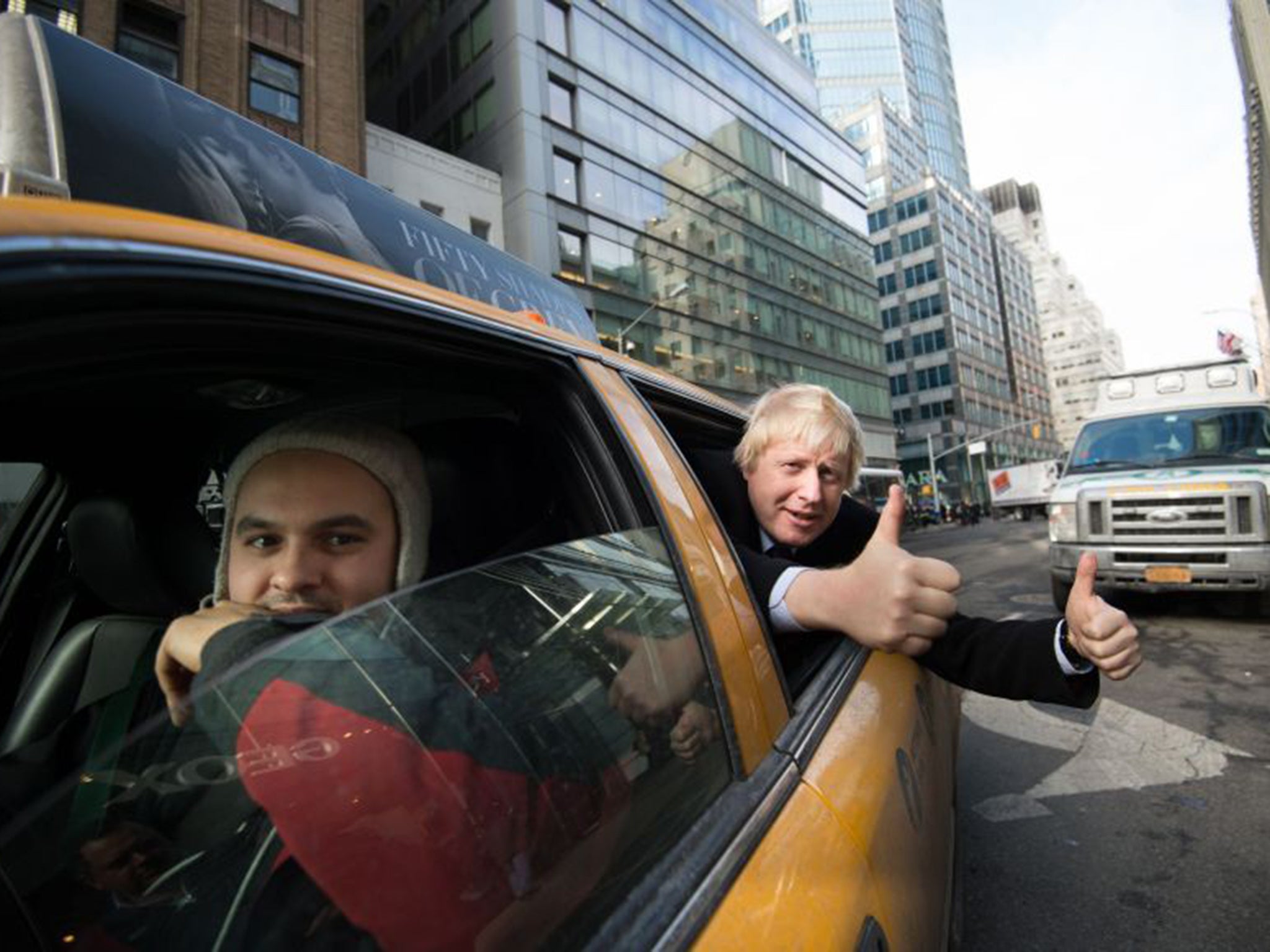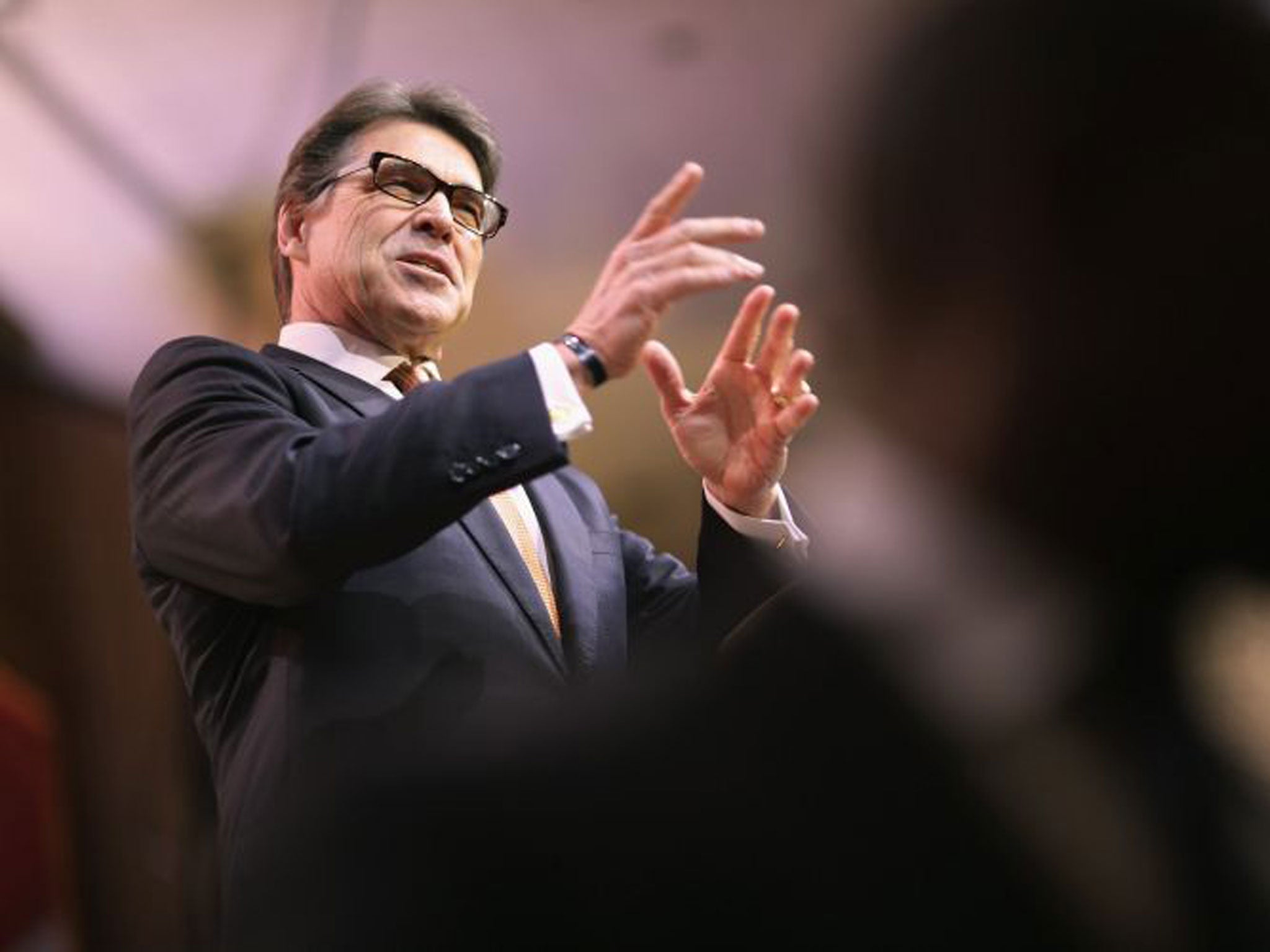From a US presidential candidate you want gravitas, but all too often you get gaffes
For politicians keen to polish their global statesman image, crossing the Atlantic - in both directions - has many pitfalls


What could be easier for a potential US presidential candidate? You schedule a trip to London and make a speech at a suitably worthy venue. You deliver a few platitudes about the special relationship between the US and Britain, and come home with a handsome photo of said candidate on the steps of No 10. And Bob’s your uncle. Gravitas and statesmanship instantly acquired: what could possibly go wrong? As it happens, a lot.
Over the past few months, there’s been a veritable procession of such suspects. (For all the polls, the punditry and the intense campaign fundraising under way, no potential Republican candidate for 2016 has actually declared.) To a man they have been present or former state governors, a post – untainted by excess contact with dysfunctional and reviled “Washington” – that has increasingly become a prime source of presidents.
But they tend to have one big hole on their CV. Senators, that other main source of presidential candidates, usually have a some knowledge of foreign affairs. Not so governors. They may have rich executive experience (unlike most senators), be versed in domestic policy and expert in the trade-offs without which the American system doesn’t work. But barring Bill Clinton in 1992, the world is not their oyster.
On the face of it, London is the perfect place to plug the gap. It’s not too far from the US. The language is the same and the cultural and historical bonds between the two countries could not be closer. And while Britain may be only a middling power these days, it is still arguably Washington’s most dependable ally.
And so for months now, governors with their eye on the White House have been pouring in, with a flock of state officials and business leaders in tow. Ostensibly, the name of the game is trade promotion. The real goal, though, is a boost not in exports and imports, but in poll ratings.
First was Rick Perry, the three-term governor of Texas, seeking redemption for sins past. Perry has always looked like Hollywood’s version of a president, but he’s best remembered for that dreadful moment during a 2012 candidates’ debate when, faithful to the holy Republican doctrine of reducing government, he vowed to eliminate three cabinet departments – and then couldn’t remember which they were.
Now he’s trying again. He’s swotted up on world affairs and has acquired a pair of black-rimmed glasses to enhance the gravitas factor. Perry’s speech at Chatham House last October was standard stuff, contrasting the barbarism of Isis with Western values, while acknowledging that it was first and foremost up to Muslims to uproot this monstrosity from their midst. But it was a vast improvement from 2012. Perry hasn’t made up his mind whether to run; if he does, he could be a formidable opponent.
The latest batch of Atlantic travellers, however, haven’t fared as well. First up was Bobby Jindal of Louisiana, a few days after the Charlie Hebdo massacre in Paris, who spoke of “no-go” zones in some European cities, run by Muslims trying to practise sharia. The line echoed Fox News’s “terrorism expert” who earned universal derision by citing dear old Birmingham as one such place, where no non-Muslim dared to set foot. The remark did Jindal no good – but he was always a long shot in the first place.

Not so Chris Christie, the governor of New Jersey, who arrived a few days later, trailing reporters and self-importance in equal measure. Even though he too hasn’t declared, the forceful, can-do Christie has always been regarded as a frontrunner. But his statesmanlike bubble soon burst, as he delivered a cack-handed response to a question about mandatory vaccinations, even as back at home his country was suffering a measles outbreak. The rest was the Christie America likes much less: the bully snapping at critics and cancelling press conferences to avoid further trouble.
And so to the latest aspirant, Wisconsin governor Scott Walker. In this fluid pre-campaign season, in which the “silent primary” of fundraising is paramount, Walker is the current flavour of the month. He ticks most of the Republican boxes. He’s a social conservative, yet has been elected three times in a state that leans Democratic. He gets things done, and picking and winning a fight with powerful trade unions has made him more appealing to the party’s money moguls. Right now, Walker is leading, or a strong second, in early polling in the key primary states of Iowa and New Hampshire.
But even Walker couldn’t avoid the curse of London. He too went to Chatham House, where he studiously avoided criticising Obama policies on Ukraine or the Middle East. So far so boring, until he was asked about evolution. He’d “punt” on that, Walker replied, noting only that “faith and science are compatible”. Cue much astonishment and amusement, both here and in Britain.
Now, the transatlantic highway for political pretenders is a two-way street. Ed Miliband came to Washington last summer and saw Obama, in his own pursuit of gravitas and statesmanship. And while such qualities are not generally considered Boris Johnson’s top priorities, who doubts that one reason for last week’s trip by the London Mayor was a leadership bid?
The Johnson progress seems to have passed off pretty well; Americans would probably see any gaffe as par for the course from a British eccentric. For Messrs Jindal, Christie and Walker, however, the stakes are far higher. Will their faux pas matter in the long run? Probably not – and certainly not as much as “Mitt the Twit” Romney and his comments on London’s readiness for the Olympics. In the Walker case, remember that 42 per of Americans don’t believe in evolution.
Still, you wonder why the governors bother with the trip. As the defeated boxer is said to have mused after a fight, “I shoulda stayed in bed.”
Join our commenting forum
Join thought-provoking conversations, follow other Independent readers and see their replies
Comments
Bookmark popover
Removed from bookmarks